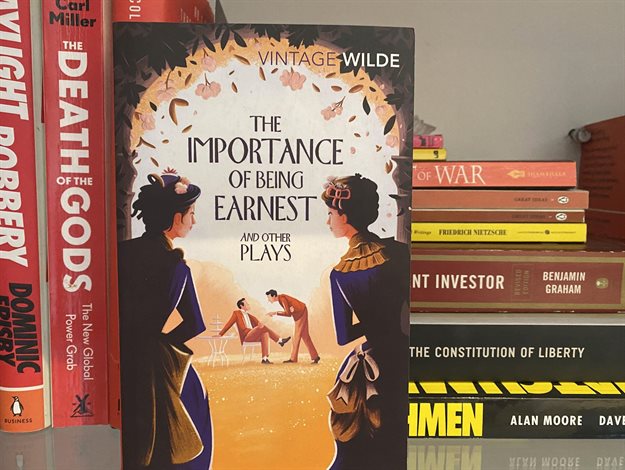An ideal customer

The same idea plays a pivotal role in both An Ideal Husband and The Importance of Being Earnest. Although in Wilde’s capable hands, such self-deception about the qualities of others is used to comical dramatic effect, I could not help but notice the potential of the same tendencies, to project what we want over what really is, as a source of unnecessary trouble in the world of business today.
Are you projecting your wishes onto your customers?
In particular, I refer to the tendency of brand managers, advertising agencies and assorted “thought leaders” to lend weight to the results of leading customer surveys; and to use those “results” to inform campaigns, product launches and organisational strategies. These sorts of surveys, the ones that ask suggestive questions, such as “Would you prefer to support a sustainable brand over a non-sustainable brand?” or “Would you pay more for a service provided by an all-female team?” tend to tell us what we want to hear about what our customers want and who we want them to be, rather than reveal who our customers really want and who they really are.
To see who our customers really are, we need to watch their behaviour - wide is the gap between who we say they are (or who we even wish to be!) and what we do. Ticking a box on a survey saying that we are happy to pay a premium for ethics is quite different from actually picking the higher priced product from the supermarket shelves.
Do good, but for the right reasons
Of course, having and running an ethical business is a noble goal that should be commended! But it does not pay us or our shareholders to convince ourselves that our ethical choices have a direct economic justification when there is no real basis for that assumption.
Sometimes, doing the right thing has a cost - indeed, a value is not a value until it has cost you in its pursuit! This then means that in order to live up to your own values, you may need to accept a smaller market share or to lose some of your more price sensitive customers.
The question is then, if you are willing to pay the real cost your values demand.
About Bronwyn Williams
- #PulpNonFiction: Local books worth reading and gifting this holiday - 20 Dec 2021
- #PulpNonFiction: In search of utopia - 13 Dec 2021
- #PulpNonFiction: Free Britney and other true conspiracies - 6 Dec 2021
- #PulpNonFiction: On the contrary - 29 Nov 2021
- #PulpNonFiction: The tail of Pan narrans - 22 Nov 2021
View my profile and articles...